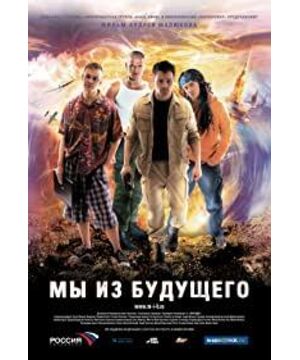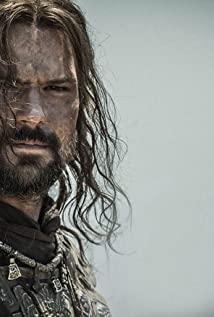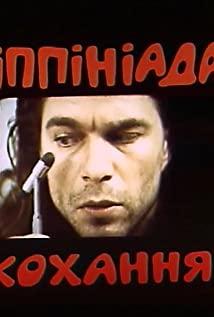Whenever a time-travel drama is filmed, whether one can find a reason for "traveling" enough to convince the audience, and establish the rationality of "travel" in the hearts of the audience, reflects the IQ of the director and the screenwriter. There are two common ways of time travel, one is science fiction time travel, which is triggered by starting a certain scientific device or experiencing a certain scientific phenomenon, such as the "Back to the Future" trilogy, "Back to the Middle Ages" and other films; The other is fantasy crossing, which is to achieve crossing in some supernatural way, such as "Butterfly Effect", "Back to Seventeen" and so on. Obviously, the former "traveling" is more reasonable than the latter, because time and space travel has become popular for decades as a sci-fi concept, and it is easier for audiences to realize travel through science fiction. . And fantasy time travel seems a bit "nonsensical", there are all kinds of ways, and the effect is good or bad, like the idea travel in "Butterfly Effect", it is naturally good to bring a new sense of freshness to people, like "Return" "Seventeen Years Old" like the protagonist casually fell into the river and returned to the high school days, running out of the player tunnel and returning to the modern design is naturally poor. Obviously, fantasy time travel takes more effort than sci-fi time travel to create rationality.
Specific to the film "Lost in the Ancient Tomb", four young Russians who are not doing their jobs and make a living by excavating and selling relics of World War II, when excavating a site of the Stalingrad defense battle, suddenly crossed into the battlefield where the artillery was full of fire, no doubt belonged to Fantasy travel, the director's meticulous foreshadowing and ingenious design in creating rationality are commendable. First, the battlefield sites full of mystery and the letters left by the soldiers of the past were used to render the sense of history, and then the four soldiers' certificates appeared in the safe, which made them think that they had hallucinations. The feeling greatly increased, and then the restless four jumped into the lake to wake up. At this time, I am afraid that most of the audience can guess that the plot is about to turn here. The director also subtly switches the tone here to imply to the audience that the crossing has occurred. When they jumped into the lake, it was still a sunny scene. When they raised their heads from the water again, the surrounding environment immediately became chilling and cold. It started to rain, the sound of cannons rumbled in the distance, and the bullets whizzed past, creating a very good atmosphere to achieve the crossing. In reality, the grandmother who delivered milk to them asked them to find the relics of their sons, which set the task conditions for them to travel back to the modern age in the future, and made the necessary preparations.
"Lost in the Ancient Tomb" embodies the advantages of the Soviet and Russian traditional feature films with solid plots, stable narratives, and distinctive characters. Four irresponsible and selfish young people, baptized by artillery fire, and inspired by the dedication of the Soviet soldiers around them, finally rediscovered themselves, put aside their fears and charged to defend their homeland and the country. The film takes them through a series of events. The character change is depicted in clear layers. At first, the four people just wanted to go back through the lake, and they only wanted to hide and escape during the battle. The care and maintenance of the old man and the meeting with their comrades in arms first strengthened their sense of identity. Then in the task of scratching the tongue, in order to cover their heroic sacrifice, the old man further touched them on the soul. Later, after the four were caught by the German army, the milkman's grandmother's son used death to cover them and escaped from the tunnel. In addition, the heroine's beloved female nurse was reluctant to leave the battlefield and wanted to live and die with the soldiers. These finally made the four To achieve a complete transformation, risking death at any time and being unable to return, and launching the first battle of the Leningrad counteroffensive, the rationality of the transformation of the character's mentality is fully convincing.
War scenes are naturally a major commercial element that attracts audiences. This film inherits the advantages of Soviet films that are good at filming war scenes. The scenes are realistic and shocking, and various battlefield environments and weapons such as bunkers, planes, tanks, cannons, sniper rifles, etc. are displayed very well. Rich, different battle scenes such as defense and attack are also more diverse, especially the ending battle for more than ten minutes is particularly enjoyable to watch. Maybe the director understands that the four protagonists are all male, and the war theme will make the audience of the film more limited to male audiences, so he specially added a beautiful female nurse from the Soviet Army to the film, who is the same as the male protagonist, etc. People have multiple emotional entanglements, staged romantic love scenes, so as to alleviate the overly serious atmosphere of the film, add flexibility to the plot, and expand commercial selling points. To say that there are beautiful female warriors in war films is a "glorious tradition" of Soviet films. Ekaterina Klimova, who plays a female nurse in this film, seems to be Sophie Marceau and Catherine Zeta. - Jones' fit, body and appearance are very seductive. In particular, I want to remind everyone that this film also inherits the "dew point" tradition of actresses in Soviet literary and artistic films. In an intimate scene between the female nurse and the male protagonist before the end of the war, you don't have to widen your eyes to find the "surprise" "As I said above, the reviewers must have fallen asleep at this point.
In addition, the film's jokes and light-hearted plots are also well-designed, effectively adjusting and enriching the atmosphere and rhythm of the plot. The four people always want to return to the modern age through the lake, but they can't do anything, and they swim around in the lake naked. He is always seen as insane by the artillery fire, and the appearance of being naked is very funny. Their "traveling" status can also provide a lot of jokes. They can tell people about the future at any time, the war has been won, etc., and they also use the achievements of the Soviet Union in the future to pick up girls and attract the attention of female nurses. The atmosphere, especially when the fighters are partying and performing, uses modern rap-pop to perform traditional songs, creating a joyful atmosphere and making people look interesting.
The reason why this film is said to be the main theme of Russia is that under many commercial elements, the director strives to warn contemporary Russian youth to establish correct values and outlook on life through the film. Contemporary young people are selfish "small" in the money society. In particular, the film mercilessly ridiculed and criticized Russia's "skinheads" under the banner of racism. One of the four youths was a standard "skinhead". He even thought that Stalin should join forces with Hitler in the peace talks. Conquering the world and tattooing the Nazi "swastika" on his arm, he was completely unaware that he was inheriting the "legacy" of the invaders. So, on the battlefield of the confrontation between Sud and Germany, he really felt his absurdity and ignorance as a skinhead, completely changed his mind, and there was an ending. After returning to reality, he used a sharp stone to put the " The swastika" is a resolute move to scrape off. The last shot of the film is that the four people who have experienced the rest of their lives after the battlefield return to the street they often go to, and see a group of young people and skinheads who are just as cynical and lost in life as they are, as if they were looking at their former self. The director's comparison here makes the self-reflection intention of young Russians watching the film self-evident.
Of course, "Lost in the Tomb" isn't everywhere. It's a very good movie. If that's the case, it should be as world-renowned as "The Ninth Company" and "Night Watchman". People haven't heard of it yet. Although the film has many advantages, it also has some disadvantages. The more prominent problems are that the style is too traditional, the characteristics are not clear enough, the plot is not fast enough, and the plot is not compact enough, which makes people feel a little bland. Love scenes are also a bit too much, and life and death are imminent, and I don't forget to play romance and passion, because commerciality damages the sense of reality. The shooting method of war scenes is also more traditional, and there is still a certain gap between the realism and excitement compared with Hollywood. The details of the battlefield are also a bit rough. For example, in the final battle, there were many Soviet tanks dispatched. The director also specially filmed the scene of the tanks pressing over the Soviet trenches and heading for the German positions. Disappeared, otherwise do you still need the hero to bomb the bunker in person? The film particularly emphasizes that the condition for traveling back to modern times is to find the precious relics of the martyrs and bring them to the milkman. not done well. (Text / Levin)
View more about We Are from the Future reviews










